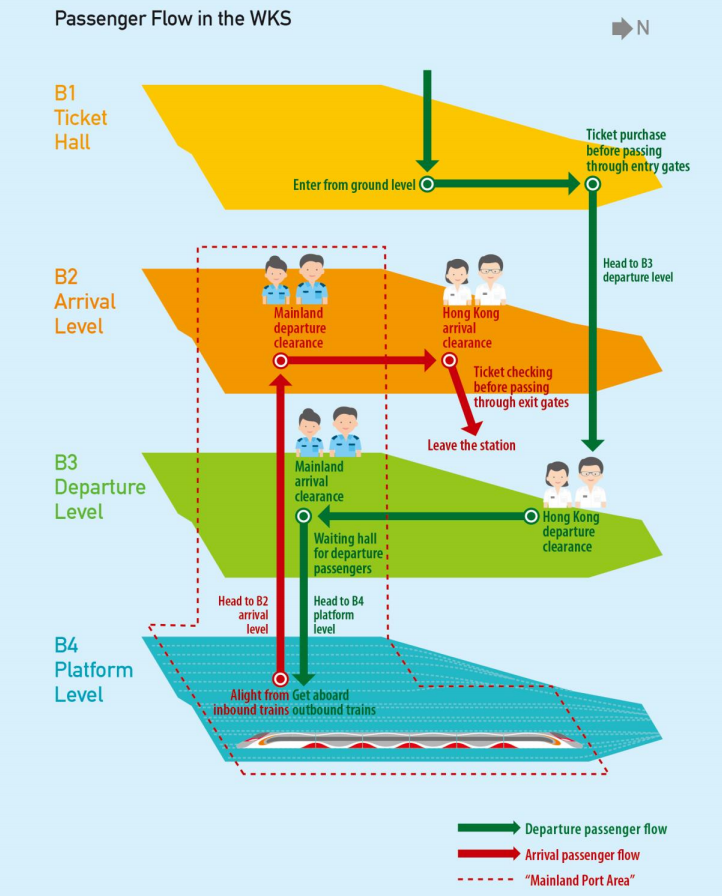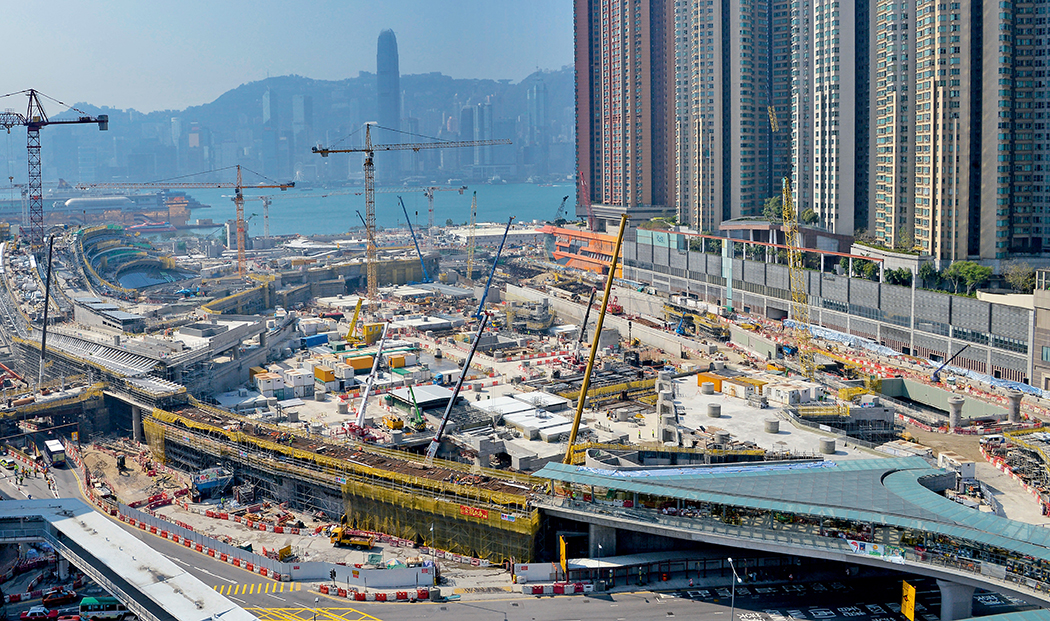The government has announced that mainland laws will be enforced in parts of the Express Rail Link Terminus as part of a joint checkpoint arrangement. Areas of the site will be leased to the mainland government as part of the proposal.
The government has repeatedly insisted that the HK$84.4 billion Guangzhou-Shenzhen-Hong Kong Express Rail Link must adopt a joint checkpoint arrangement, or its effectiveness will be diminished as passengers would have to disembark in Shenzhen for border checks. The line is expected to be operational in the third quarter of next year.

The controversial arrangement has been under discussion since 2007. It has often been questioned for potentially violating Article 18 of the Basic Law. The article stipulates that national laws shall not be applied in Hong Kong, except for a few stated in Annex III relating to certain circumstances involving national issues.
The pro-democracy camp has often questioned the feasibility of implementing a mainland immigration, customs and quarantine zone on Hong Kong soil without violating laws.
A ‘transport issue’
Secretary for Justice Rimsky Yuen said at a press conference that both Hong Kong and Beijing authorities agreed that the arrangement should not violate the Basic Law and the “One Country, Two Systems” principle.
The arrangement must be feasible and effective, and it should be able to “manage security risk robustly and prevent security loopholes,” he said.
“The mainland port area will not be part of Hong Kong, and because legally it is outside Hong Kong… the joint checkpoint arrangement will not violate the Basic Law,” Yuen said.

Yuen denied that the arrangement meant ceding Hong Kong land.
He cited Article 7 of the Basic Law, which stipulates that the land and natural resources within Hong Kong are state property, and that the Hong Kong government is responsible for their management and lease.
“There will not be any transfer of property ownership,” he said. “The rights and obligations of passengers, when going through [customs, immigrations and quarantine] procedures, will also remain the same.”
“The implementation of [the joint checkpoint] arrangement is neither a directive or an order by the central people’s government,” he added.
Yuen stressed that the arrangement was a transport issue.
“The legal issues involved can be dealt with through legal means. I hope that people will not over-politicise such transport or legal issues. Over-politicisation would not be conducive to the healthy development of our community or the overall interest of the Hong Kong SAR.”
Designated areas
In the mainland port area, mainland agents will enforce not only customs, immigration and quarantine rules, but also criminal laws.
Around 200 mainland officers will be stationed in the designated area, and will not be allowed to leave. Mainland authorities will have detention rooms, storage rooms for arms and rest areas on B2 and B3.

The B1 floor of the Terminus will be the ticketing hall. The B2 and B3 floors will be the Hong Kong and mainland immigration control areas, and parts of the two floors will be leased to the mainland. The platform will also be under mainland jurisdiction, though Hong Kong will control the tracks and tunnels.
After passengers are cleared for departure on Hong Kong soil, they will enter the designated mainland port area for mainland arrival clearance. Meanwhile, arriving passengers will enter the B2 floor for mainland departure clearance, then enter the Hong Kong area after undergoing Hong Kong immigration procedures.
The train cabin will also be a mainland area, meaning that criminal cases occurring on the train will be handled by mainland authorities.

Yuen also said there will be six areas in the mainland port zone where Hong Kong laws would still be followed:
- Hong Kong operating personnel entering the mainland area in the course of their duties;
- Building design and maintenance laws;
- The operations, insurance, tax, and employee relations of the railway’s operating company;
- Safety regulations and the monitoring of train operations;
- Contractual provisions and obligations between passengers and the railway;
- Other provisions as necessary in the contract between the relevant Hong Kong and mainland operating companies involved.
Secretary for Security John Lee said passengers would have to use their legal names to buy tickets and must undergo luggage checks.
Democrats have warned of potential arrests should passengers protest on the train. Examples they gave included asking for the release of the widow of the late Chinese dissident Liu Xiaobo, or shouting slogans for the vindication of Tiananmen massacre victims.

The joint checkpoint arrangement would be a reversal of the Shenzhen Bay control point, where Shenzhen leased a piece of land to Hong Kong for law enforcement.
Currently, Hong Kong pays HK$7 million per year to the mainland for renting land in Shenzhen Bay. The transport secretary Frank Chan refused to answer whether the mainland will pay rent for leasing land in West Kowloon.
Yuen said the next step is to sign an agreement with mainland officials. The Standing Committee of the National People’s Congress will need to endorse a resolution to authorise mainland law enforcement agents to enforce the law in the area in Hong Kong, whilst Hong Kong will also need pass laws at the Legislative Council.
The law is expected to be passed with the help of the pro-Beijing camp, which has a majority in the legislature.
